Privacy and cookies policy
§1 Personal data
As the administrator of personal data on Seaoo.com, the Forwarding Agent shall care for security of provided data, in particular against access of unauthorised entities. The Forwarding Agent shall also ensure all registered Ordering Parties the exercise of rights specified in the Personal Data Protection Act of 29 August 1997 (Journal of Laws, No. 133, item 883), in particular the right to view one's data, request its update and removal as well as the right to raise objection in matters specified in the Act.
§2 Technical information
Information included in system logs may contain different types of data, e.g. IP address. The Forwarding Agent shall use the data only for technical purposes and to collect general statistical demographic information. The above data may be made available to authorised entities on the basis of applicable provisions of law in the case of violation of the Forwarding Agent's rights, a break-in attempt or another detrimental action. Some areas of Seaoo.com may use cookies, i.e. text files saved on the Ordering Party's computer, which identify the Ordering Party in a manner necessary to make certain operations possible. Cookies files shall be used to save data necessary to login the Ordering Party, etc. Cookies may operate only if they have been accepted by a web browser and not removed from the disc.
SEAOO.com "cookies" files policy
What are "cookies" files?
"Cookies" files are files with text information which a website sends to a user's web browser. They help secure the website, make it possible to remember crucial information, thanks to which using the website will be more convenient, e.g. they facilitate retrieving previously entered data.
What types of "cookies" files are used?
There are two types of "cookies" files:
Session "cookies" - temporary information that is removed after closing a web browser or disabling a device.
Fixed "cookies" - they store information saved in the device long-term memory. They are kept in this location until being removed by the user.
How do we utilize "cookies" files?
"Cookies" files make it possible to understand how users use a website. They make it possible to improve website operations and adjust them to users' needs. "Cookies" files are not used to process or store personal data or other confidential information.
How to remove "cookies" files?
The method of removing the files differs depending on the type of user's web browser. More information on cancelling and blocking "cookies" files is available in the Help section of a web browser used.
Did you know?
Formula EXW (Ex Works) says that the exporter does not incur any transport costs and customs duties. Its role ends with the delivery of the goods from the warehouse. Costs related to the organization of transport and insurance costs are borne entirely by the importer.











